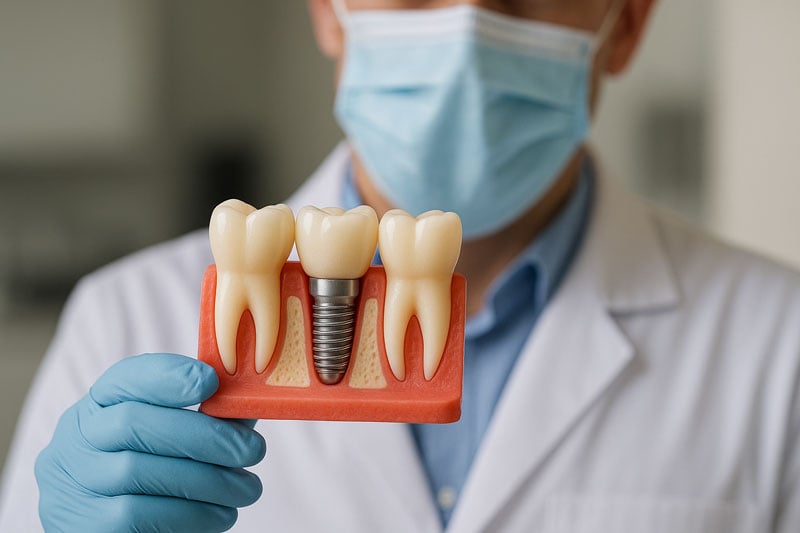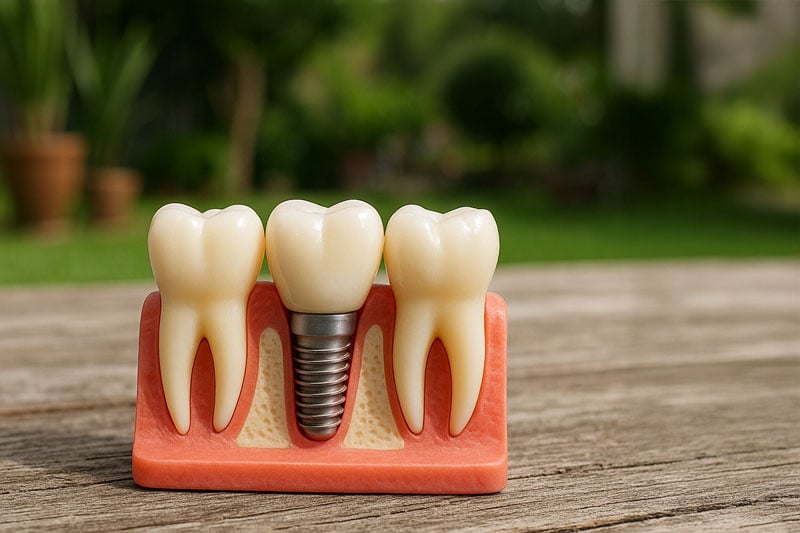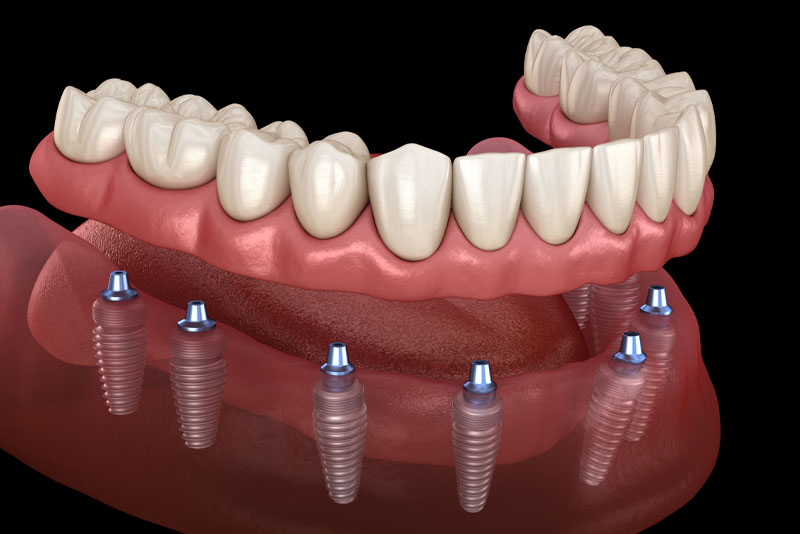Dental Blog - Las Vegas & Henderson, NV
Dental Blog

An Expert Guide to Managing Swollen Wisdom Tooth Pain: Relief & Prevention

Swollen wisdom tooth pain is a common ailment affecting many young adults. The primary causes often include the eruption of the teeth at awkward angles or their inability to erupt fully, known as impaction. This impaction can lead to inflammation of the surrounding gums, resulting in the common symptoms of pain and swelling. Over time, the pressure exerted by erupting wisdom teeth can also contribute to the misalignment of other teeth, leading to further dental complications. Additionally, swelling can arise from bacterial infections in the gums, making oral hygiene crucial. Understanding these causes can help patients anticipate potential issues and seek timely treatment.
The effects of swollen wisdom tooth pain go beyond mere discomfort. The swelling can significantly impact daily activities, making eating and speaking challenging. In severe cases, individuals may experience persistent headaches and jaw stiffness, affecting overall well-being. When left untreated, swollen wisdom teeth can lead to more serious infections, such as abscesses, which require immediate medical attention. It can also cause gum disease, creating a fertile ground for bacteria to thrive. Therefore, recognizing and addressing the effects of a swollen wisdom tooth is essential for maintaining optimal oral health.
Spotting the Signs: Symptoms of Swollen Wisdom Tooth Pain
Recognizing the symptoms of swollen wisdom tooth pain is the first step towards addressing the issue effectively. Typical symptoms include tenderness and swelling at the back of the mouth, often accompanied by a noticeable pressure on surrounding teeth. Dental patients may also observe redness and a persistent aching sensation that can radiate to the ear or throat. It’s crucial to note any bleeding or pus discharge, as these may indicate an infection that requires professional intervention. Additionally, swollen lymph nodes around the neck and jaw can also be a symptom of impacted wisdom teeth. Staying vigilant to these signs allows you to seek timely solutions to avoid escalating complications.
Other symptoms of concern include difficulty in opening your mouth wide, a condition known as trismus, and an unpleasant taste or bad breath, which suggests bacterial presence. Pain can worsen while eating or brushing, making routine oral hygiene a cumbersome task. Some individuals may experience fever or a general feeling of malaise, signaling the body’s response to infection or inflammation. Therefore, monitoring these symptoms and their progression is essential for determining the next steps in your dental care journey. Early detection means a more straightforward resolution and less discomfort in the long run.
At-Home Strategies: Relieving Wisdom Tooth Pain Yourself
When faced with the predicament of swollen wisdom tooth pain, several home remedies can provide relief before seeking professional intervention. A popular method is rinsing your mouth with warm salt water, which helps to reduce bacteria and sanitize the affected area. Applying a cold compress externally can also mitigate swelling and numb the pain. Over-the-counter pain relievers, such as ibuprofen, can offer temporary reduction in discomfort until a dental appointment is scheduled. Additionally, maintaining high standards of oral hygiene, such as gentle brushing and careful flossing, can prevent further bacterial attacks.
Other natural approaches include using clove oil for its analgesic and anti-inflammatory properties. Carefully applying a small amount to the swollen area can provide substantial pain relief. Incorporating chamomile or peppermint tea bags, slightly cooled, and applying them to the inflamed gum tissue can also soothe irritation. It’s vital to listen to your body’s signals and rest as needed, as stress can exacerbate pain levels. These self-care strategies empower you to manage discomfort while navigating when professional evaluation is necessary.
When Intervention is Key: Determining the Need for Professional Help
While home remedies offer temporary relief, there are clear indicators that professional dental intervention is necessary. Persistent pain and swelling that do not diminish with at-home care warrant a visit to a dental expert. Infections manifested by pus drainage or prolonged bleeding should be promptly addressed by a dental professional. Moreover, if there is a fever or if difficulty swallowing or opening the mouth continues, it indicates a more severe infection that could impact your overall health. An experienced dentist can accurately diagnose the condition and offer appropriate treatment options, ultimately safeguarding your comprehensive oral health.
Another cue for professional assessment includes the recurrence of the same symptoms, suggesting a chronic issue like pericoronitis, which requires systematic treatment. Suppose you notice dental alignment changes or increased tooth sensitivity resulting from the pressure of the wisdom teeth. In that case, these signs indicate that it’s time to consult with a qualified dental expert. Seeking early treatment can prevent complications and restore normal mouth functions effectively. Our skilled team at Nevada Oral & Facial Surgery can assist you in navigating the complexities of swollen wisdom tooth pain through modern interventions.
At Nevada Oral & Facial Surgery, we utilize advanced diagnostic tools to assess the condition of your wisdom teeth and determine the best course of action. From various treatment options, including extraction, if necessary, we ensure personalized care tailored to your specific needs. Dr. Brendan Johnson is committed to providing exceptional dental services that prioritize your comfort and recovery. Are you ready to restore your smile at our skilled and trusted dental practice? Don’t wait to get the smile of your dreams with us. Get in contact with our doctor, [DOCTOR NAME] and our exceptional team at our practice to schedule an appointment today!




